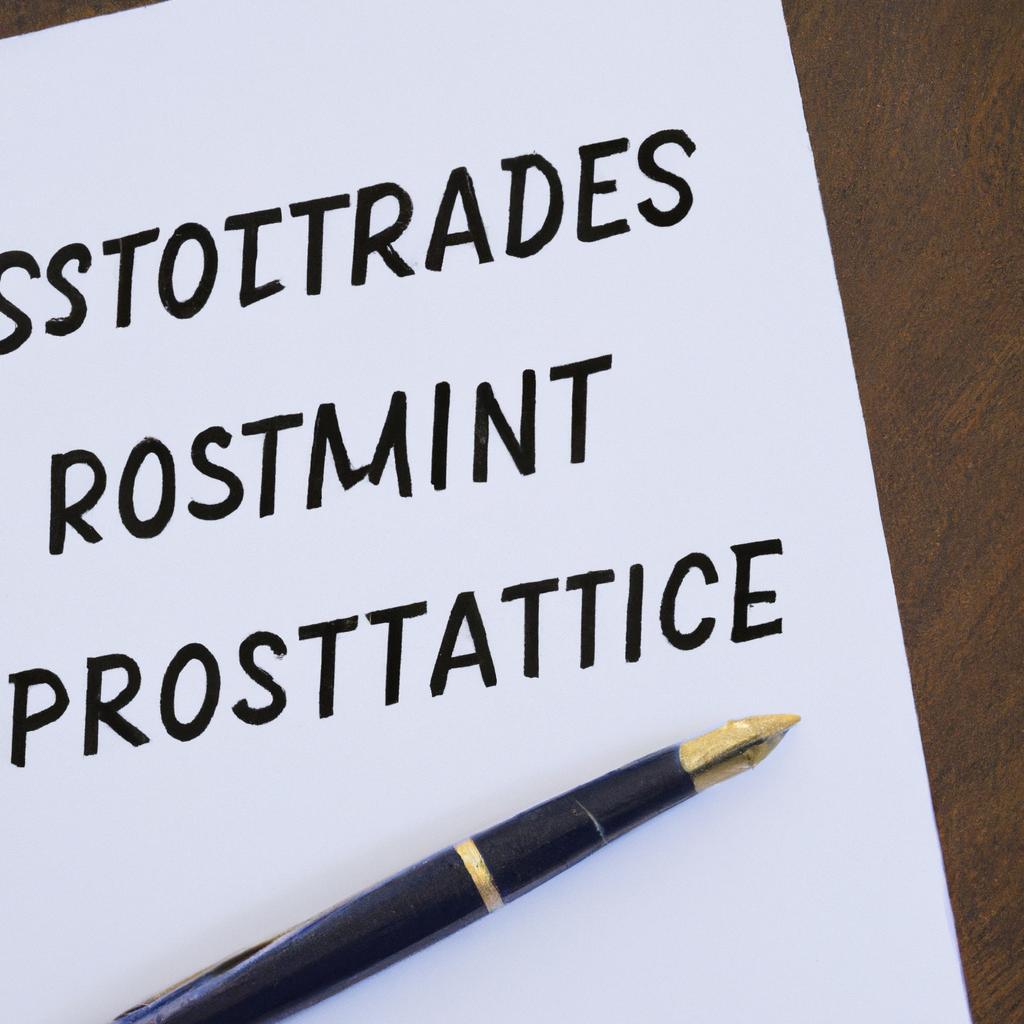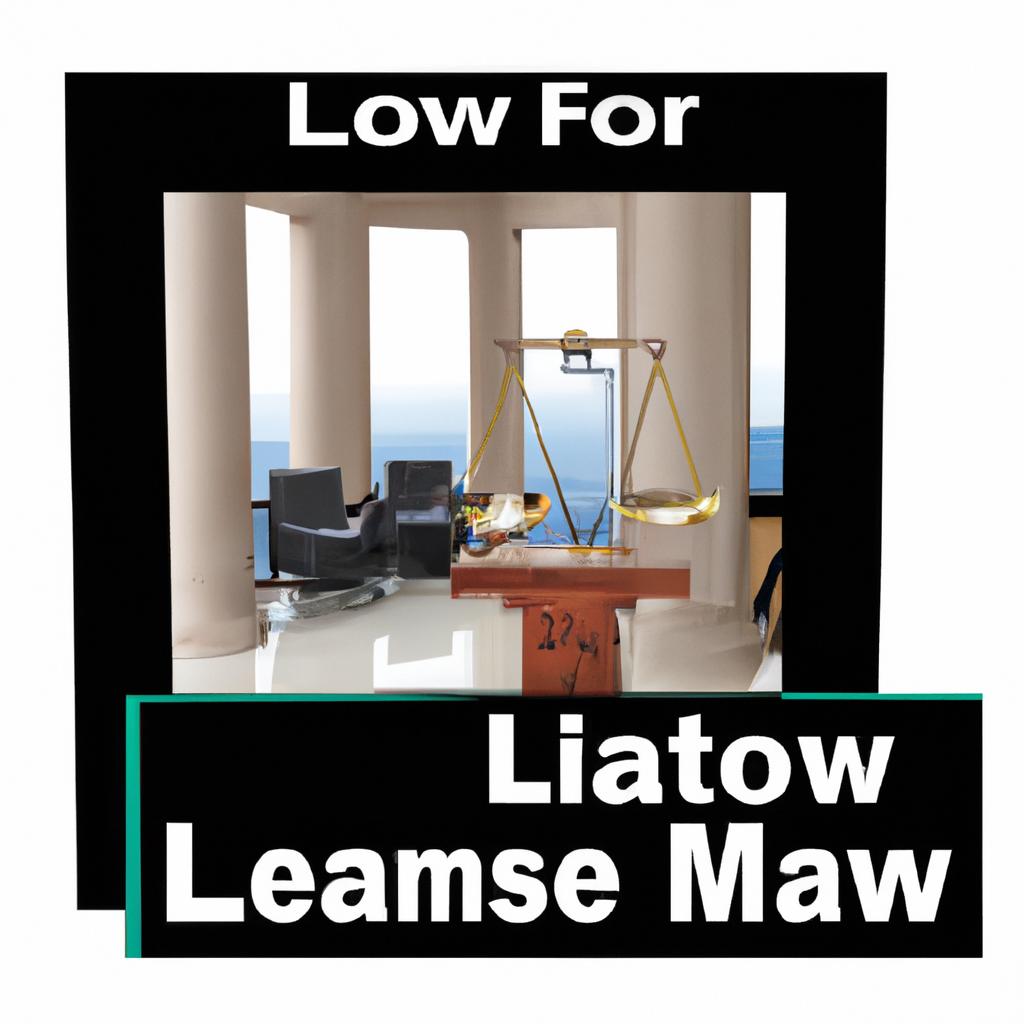Probate, the legal process of administering a deceased individual’s estate, is a crucial step in the aftermath of one’s passing. As experienced legal practitioners at Morgan Legal Group in New York City, we understand the complexities and timelines involved in probate proceedings. In this article, we aim to unravel the puzzling question: how long does probate take after death? Join us as we delve into the intricacies of this legal process and provide clarity on what to expect in the journey of administering an estate post-mortem.
Understanding the Probate Process After the Death of a Loved One
When a loved one passes away, it is essential to understand the probate process and the timeline involved. Probate is the legal process of administering the estate of a deceased person, resolving any debts and distributing their assets to the rightful beneficiaries. The length of time it takes for the probate process to be completed can vary depending on various factors, but typically it can take several months to a year.
During the probate process, the following steps are generally taken:
- File a petition with the court to open the probate case.
- Notify beneficiaries, heirs, and creditors of the death.
- Inventory and appraise the deceased person’s assets.
- Pay off debts and taxes owed by the estate.
- Distribute remaining assets to beneficiaries according to the deceased person’s Will or state law.

Factors Impacting the Length of Probate Proceedings
can vary depending on the complexity of the estate and the state laws governing probate. One major factor that can influence the duration of probate is whether the deceased individual had a valid Last Will and Testament in place. If a Will exists, the probate process may be faster as it provides clear instructions on how to distribute the assets of the estate. On the other hand, if there is no Will or if the Will is being contested, probate proceedings can be extended as the court works to determine the rightful beneficiaries.
Another factor that can affect the length of probate is the size and complexity of the estate. Larger estates with a wide range of assets, such as real estate properties, investments, and businesses, may take longer to probate as each asset must be properly valued and distributed according to the law. Additionally, if there are disputes among beneficiaries or creditors making claims against the estate, this can further prolong the probate process. It is important to work with experienced probate attorneys, like those at Morgan Legal Group in New York City, to navigate these complexities and ensure a smooth probate process.
| Validity of Will | Can speed up probate process |
| Estate Size and Complexity | May extend the length of probate |

Tips for Streamlining the Probate Process
When dealing with the probate process, it is essential to streamline the process as much as possible to minimize time delays and expenses. Here are some tips to help you navigate through the probate process efficiently:
- Organize Documents: Gather all necessary documents such as the deceased person’s Will, financial records, and property deeds to present to the court.
- Communicate with Beneficiaries: Keep beneficiaries informed throughout the process to prevent disputes and delays in distributing assets.
- Hire experienced legal counsel: Consult with a knowledgeable probate attorney who can guide you through the legal requirements and deadlines involved in probate proceedings.
| Days After Death | Probate Steps |
|---|---|
| 1-5 | File Will with the court |
| 6-10 | Notify creditors and publish a notice of death |
| 11-20 | Evaluate assets and liabilities |
| 21-30 | Distribute assets to beneficiaries |

Seeking Legal Guidance for Efficient Probate Administration
When it comes to probate after the passing of a loved one, one of the most common questions people have is, “how long does probate take after death?” The answer to this question can vary depending on a variety of factors, including the complexity of the estate, any potential disputes among beneficiaries, and the efficiency of the probate process itself.
- On average, probate can take anywhere from several months to a year or more to complete.
- However, with the guidance of an experienced probate attorney, you can help streamline the process and avoid unnecessary delays.
At Morgan Legal Group, our team of estate planning and probate experts can provide you with the legal guidance you need to ensure an efficient probate administration process. From navigating complex estate laws to resolving disputes among beneficiaries, we are here to help you every step of the way.
Q&A
Q: How long does probate typically take after someone passes away?
A: The length of time it takes for probate to be completed can vary depending on various factors such as the complexity of the estate, potential disputes among beneficiaries, and the efficiency of the executor. On average, probate can take anywhere from a few months to several years.
Q: What is probate and why does it take so long?
A: Probate is the legal process of administering a deceased person’s estate, settling their debts, and distributing their assets to beneficiaries. The process can be lengthy due to the necessary court proceedings, potential disputes among heirs, locating and valuing assets, and fulfilling legal requirements.
Q: Is there anything that can be done to expedite the probate process?
A: Hiring a knowledgeable probate attorney, keeping detailed records of all assets and debts, and promptly addressing any disputes can help streamline the probate process. Additionally, providing clear and thorough estate planning documents, such as a will or trust, can help avoid delays in probate.
Q: Can probate be avoided entirely?
A: In some cases, probate can be avoided through proper estate planning strategies, such as creating a revocable living trust, naming beneficiaries on accounts and assets, and ensuring all titled property is held jointly. However, probate may still be required for certain assets or in the absence of these planning measures.
Wrapping Up
In conclusion, understanding the timeline of probate proceedings after a loved one’s passing can help alleviate some of the stress during this difficult time. While the time it takes for probate to be completed can vary depending on various factors, it is important to be patient and seek guidance from a legal professional if needed. By being informed and proactive, you can navigate the probate process with greater ease and peace of mind. Remember to take care of yourself during this time and surround yourself with support. Thank you for reading.
 Probate How Long After Death: Understanding the Probate Process
Probate How Long After Death: Understanding the Probate Process
The passing of a loved one can be a difficult time, and dealing with legal matters can only add to the burden. One of the most common legal processes after a person’s death is probate. Probate is a legal process that involves handling the assets and property of a deceased person according to their will or state laws. One question that often arises during this process is, “How long after death does probate take?” In this comprehensive article, we will explore the probate process, its timeline, and important considerations to keep in mind.
Understanding the Probate Process:
The probate process begins after a person’s death and involves the distribution of their assets and property to their beneficiaries. The process can vary from state to state, and it can also depend on whether the person had a will or not. Generally, the probate process has several steps, which may include:
1. Filing a petition with the court:
The first step in the probate process is filing a petition with the court in the county where the deceased resided. This petition can be filed by the executor of the will or any interested party, such as a family member or a lawyer.
2. Notifying beneficiaries and heirs:
After the petition is filed, the court will issue a notice to the beneficiaries named in the will and any potential heirs who may have a claim to the estate. This notice typically includes a deadline for any objections to be raised.
3. Appointing an executor:
If the deceased person has a will, they have likely named an executor to oversee the probate process. If there was no will, the court will appoint an administrator to handle the process.
4. Inventory of assets:
The executor or administrator will need to take an inventory of all the assets and property owned by the deceased, including bank accounts, investments, and real estate.
5. Paying off debts:
Before any assets can be distributed to the beneficiaries, the executor will need to pay off any outstanding debts, such as mortgages, taxes, and creditors’ claims.
6. Distribution of assets:
Once all debts have been paid, the remaining assets can be distributed to the beneficiaries according to the instructions in the will or state laws.
How Long After Death Does Probate Take?
The probate timeline can vary significantly depending on several factors, such as the complexity of the estate, the efficiency of the executor, and any potential conflicts between beneficiaries. On average, the probate process can take between six months to two years to complete. However, in some cases, it can take even longer, especially if there are legal disputes or challenges to the will.
One of the reasons probate can take a considerable amount of time is the involvement of the court. The court’s role is to oversee the process and ensure that all steps are carried out correctly. This can involve waiting for documents to be approved and scheduling court hearings, which can contribute to delays.
Furthermore, if the estate is subject to estate tax, this can also extend the probate timeline. In such cases, it can take up to a year for the tax returns to be processed and approved before the distribution of assets can take place.
Practical Tips and Considerations:
While the probate process can take a significant amount of time, there are some practical tips and considerations that can help make the process smoother and more efficient.
1. Hiring an experienced probate attorney:
Having an experienced probate attorney can be instrumental in navigating the process and avoiding any pitfalls. They can also handle any legal challenges that may arise, saving time and potential conflicts between beneficiaries.
2. Being organized and proactive:
The executor can help speed up the probate process by being organized and proactive in gathering and managing the necessary documents and assets. This can include collecting bank statements, tax returns, and other important papers.
3. Avoiding conflicts:
As mentioned earlier, conflicts between beneficiaries can significantly prolong the probate process. It is essential to communicate clearly and openly with all involved parties and try to resolve any potential disputes amicably.
Benefits of Probate:
While the probate process may seem like an inconvenience, it does serve some important purposes. Some of the benefits of probate include:
1. Validating the will:
Through probate, the court can ensure that the deceased person’s will is valid, and there was no undue influence or coercion at the time it was created.
2. Ensuring fair distribution:
Probate can help ensure that the assets and property of the deceased are distributed according to their wishes or state laws, ensuring a fair and equitable distribution among beneficiaries.
3. Paying off debts:
The probate process also ensures that all outstanding debts of the deceased are paid off before any assets are distributed. This can help avoid potential disputes between creditors and beneficiaries.
Conclusion:
Dealing with the loss of a loved one is never easy, and the probate process can add to the emotional and financial burden. However, understanding the probate process and its timeline can help alleviate some of the stress and confusion surrounding it. By being proactive, working with a knowledgeable probate attorney, and avoiding conflicts, you can help make the probate process as smooth and efficient as possible. Remember, every situation is unique, and the timeline for probate can vary, so it is best to be patient and seek professional guidance for a hassle-free experience.







